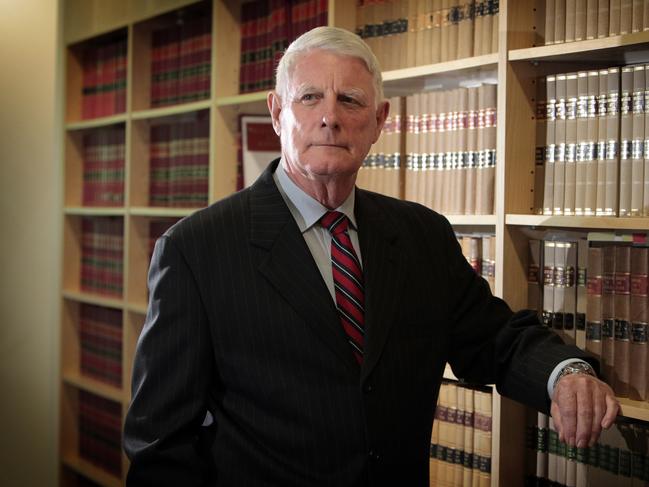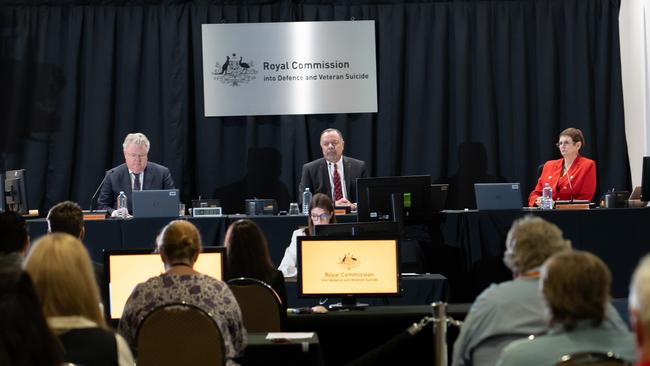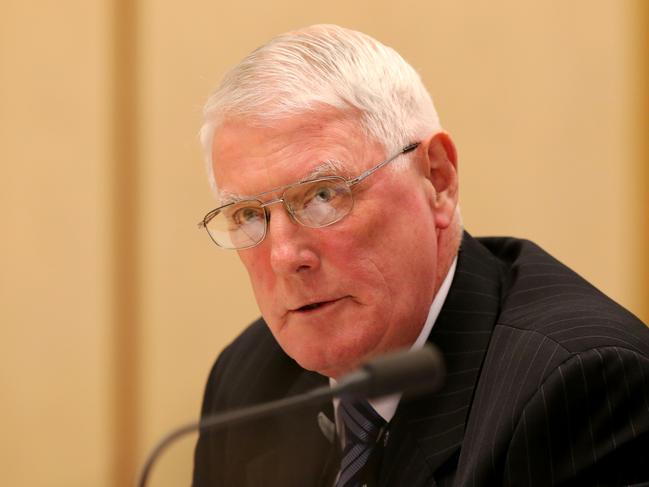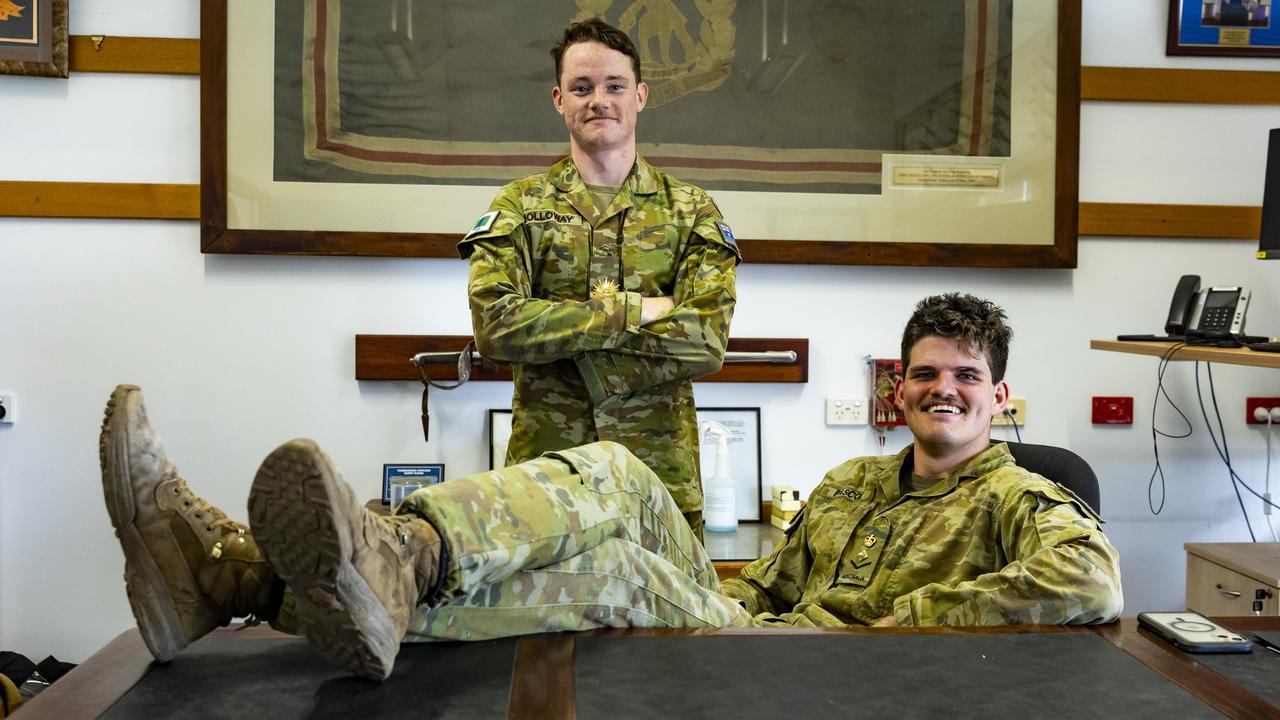Royal commission hears of problems in Defence Abuse Response Taskforce
The Royal Commission into Defence and Veteran Suicide has heard that a taskforce set up to probe abuse in the Australian Defence Force struggled to cope with a series of challenges.

Townsville
Don't miss out on the headlines from Townsville. Followed categories will be added to My News.
A GOVERNMENT taskforce set up to probe abuse in the Australian Defence Force had a limited scope and had no legal powers to compel anyone to speak to it.
The former chair of the Defence Abuse Response Taskforce (DART) Leonard Roberts-Smith gave his frank assessment of the body as he gave evidence before the Royal Commission into Defence and Veteran Suicide in Townsville.
DART was established in November 2012 to provide respite to people who claimed to have suffered physical or sexual abuse within the ADF prior to April 2011.
This included 24 serious allegations of abuse at Australian Defence Force Academy and other abuse allegations at the tarnished HMAS Leeuwin.

The former judge told the commission DART was initially given six staff members and a 12 month time frame to achieve its goals but that when abuse claims started pouring in it didn’t even have an office or a computer system to record them.
“As at day one, there were seven of us and we had to build the taskforce and everything that that entailed,” he said.
“Once the announcement had been made by the government, we started receiving allegations of abuse from complainants directly to the taskforce.
“Our first task was simply to collect these (allegations) as they came in to log them, yet bearing in mind we didn’t even have a computer system at that time and we had to log them physically.”
He said that as horrific stories of abuse were logged with DART the team was tasked with finding office accommodation, setting up computers, case management, accounting and logistics systems and recruiting more staff.
Mr Roberts-Smith said the taskforce faced a number of legal and confidentially challenges, including initially accessing information from Defence although this issue was eventually resolved.
“It was a rather challenging environment in which to operate,” he said.

He said DART received extensive support from the then Attorney-General, Minister for Defence and the then Chief and Secretary of the Defence Force.
“There were some practical problems which were not in any way contrived,” he said.
“There is quite often still a general resistance in some parts of Defence given the beast that it is … but we overcame all of those.”
During his evidence Mr Roberts-Smith described poor record keeping and archiving of files and records, which in some cases had been disposed of or never made in the first place.
Mr Roberts-Smith told the commission multiple abuse victims who spoke to DART expressed they had contemplated suicide or actually attempted to take their lives.
He said another collective message from complainants was that they felt “failed” or “betrayed” by their service and that this was the fundamental driver for them to come forward about their abuse.
“It is no exaggeration to say that in very many, if not most of the cases that came to the taskforce the person who had been abused had his or her life literally destroyed as a consequence,” he said.
“What we found we were getting more commonly than not was the reaction that: ‘no I don’t actually care about the (person/s) that did this to me. What really disturbed me is the fact that the service I was in … let me down’.”
“They are supposed to look after me but they let it happen to me. I reported it and they didn’t do anything’.”

He said Defence brushed off reports of serious abuse at the Fremantle Navy Training base HMAS Leeuwin as simply historical.
“Defence in responding to anything we might say about (historic abuse at HMAS Leeuwin) in responding to anything we might say about that, would characterise it as being historical and of no particular relevance.
“Even though these might have been quite historical events … the effects of the abuse suffered … was still current,” he said.
“We are talking about men in their 60s and 70s whose lives had been destroyed by the abuse.”
The taskforce, among other things, ultimately found that allegations of serious abuse at ADFA and HMAS Leeuwin were more widespread and persistent than previous government inquiries found and were present at other ADF training institutions.
DART made reparation payments to 1723 people totalling $66.63 million, referred 133 complaints to police and 132 complaints to the Chief of the Defence Force, a government report says.
Former Judge Advocate General of the Australian Defence Force, Mr Roberts-Smith is the father of Victoria Cross recipient and accused war criminal Ben Roberts-Smith.
More Coverage
Originally published as Royal commission hears of problems in Defence Abuse Response Taskforce




